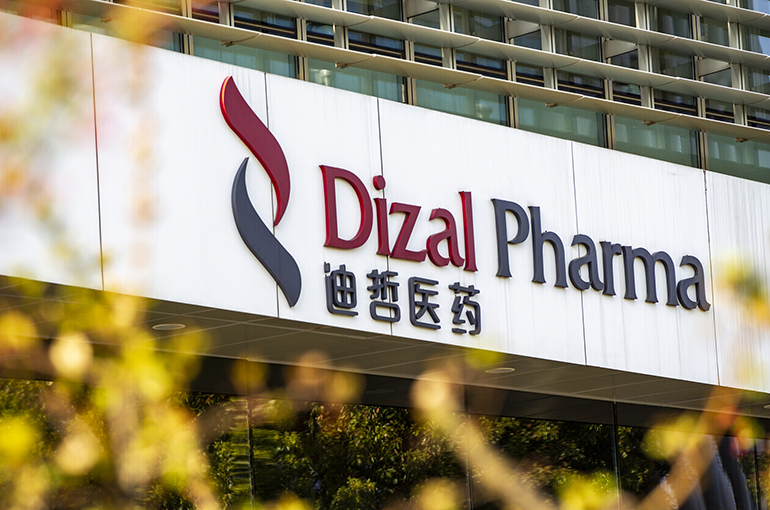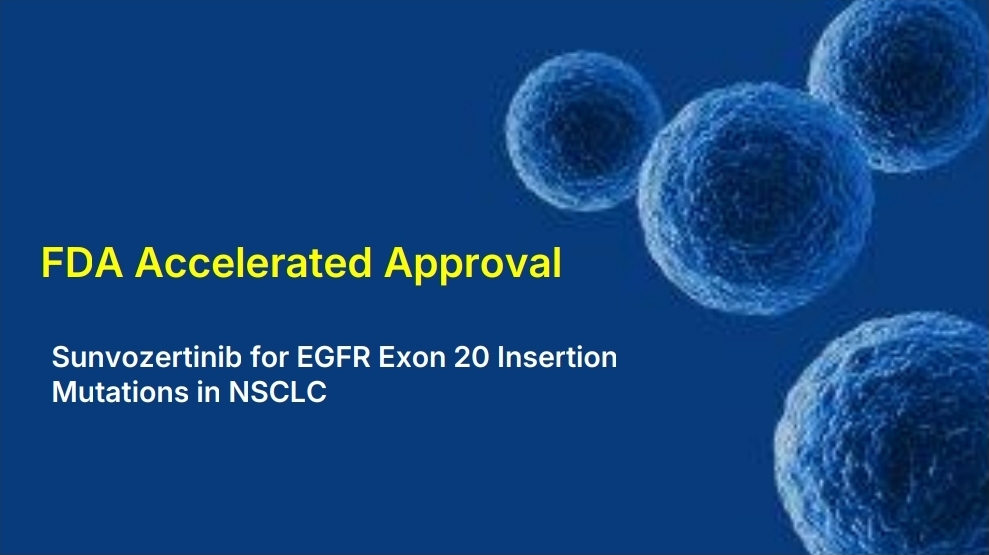Sunvozertinib, an oral, irreversible EGFR (epidermal growth factor receptor) tyrosine kinase inhibitor (TKI), developed by Dizal Pharmaceuticals, has been granted accelerated approval by the FDA for the treatment of metastatic non-small cell lung cancer (NSCLC) harboring EGFR exon 20 insertion mutations. These mutations are known to confer resistance to traditional EGFR-targeted therapies, making treatment of these patients particularly challenging.
About Dizal Pharmaceutical
Dizal Pharmaceutical Co., Ltd. is a biopharmaceutical company dedicated to the discovery, development, and commercialization of differentiated therapeutics for the treatment of cancer and immunological diseases. The company’s mission is to develop first-in-class and groundbreaking new medicines to address unmet medical needs globally. These therapies have already been launched in China, marking significant progress in their development and availability for patients in need of new treatment options.

What drug is Sunvozertinib and the mechanism of action
Sunvozertinib is a targeted therapy designed to address EGFR exon 20 insertion mutations, a common cause of resistance to traditional EGFR inhibitors in non-small cell lung cancer (NSCLC). These mutations cause structural changes in the EGFR receptor, leading to its constant activation, which drives tumor cell growth and survival. As a result, cancers with EGFR exon 20 mutations tend to be more aggressive and associated with a poor prognosis.
Unlike some other EGFR inhibitors, Sunvozertinib irreversibly binds to the tyrosine kinase domain of the EGFR receptor. This permanent binding blocks the EGFR signaling pathway, which is essential for tumor cell proliferation and survival. By inhibiting this pathway, Sunvozertinib reduces the growth of cancer cells and induces tumor cell death.
The exon 20 insertion mutations in EGFR cause abnormal conformational changes in the receptor, leading to continuous activation of key downstream signaling pathways such as PI3K-Akt and RAS-RAF-MEK-ERK. These pathways are vital for cell proliferation, survival, and invasion. When Sunvozertinib binds to the mutated EGFR receptor, it effectively inhibits these downstream pathways, resulting in reduced tumor growth, increased programmed cell death (apoptosis), and prevention of metastasis. This combined action helps control cancer progression and offers a promising treatment option for patients with EGFR exon 20 insertion mutations.
A Closer Look at the Pivotal Study
The WU-KONG1 study investigates the efficacy and safety of Sunvozertinib, a selective oral inhibitor targeting EGFR exon 20 insertion mutations (EGFR ex20ins), in locally advanced or metastatic non-small cell lung cancer (NSCLC). Patients with confirmed EGFR ex20ins mutations who had previously undergone platinum-based chemotherapy participated in the study. The drug was evaluated for its ability to provide clinical benefits in this hard-to-treat subgroup of NSCLC.
The initial Phase I and II WU-KONG6 trials showed Sunvozertinib’s promise in treating NSCLC with EGFR ex20ins mutations, leading to its conditional approval in China for this patient group. The WU-KONG1 study specifically aimed to determine the optimal dose of Sunvozertinib after an interim analysis suggested that 300 mg daily was the recommended phase II dose.
Study Design
This multinational Phase II study followed a randomized, dose-finding phase before transitioning into a single-arm phase. After an interim analysis, the study focused on Sunvozertinib at 300 mg once daily as the recommended dose.
- Primary Endpoint: Objective Response Rate (ORR) assessed by independent radiology review (IRC).
- Secondary Endpoints: Duration of Response (DoR) by IRC, investigator-assessed ORR, and DoR.
The trial enrolled 184 patients with locally advanced or metastatic NSCLC, confirming EGFR ex20ins mutations. Patients were previously treated with platinum-based chemotherapy and had an ECOG performance status of 0 or 1.
Baseline Characteristics
- 111 patients were enrolled in the 300 mg cohort.
- Stratified by the presence of brain metastases and the number of prior therapies received.
Results
The efficacy results of Sunvozertinib demonstrated encouraging outcomes:
- Confirmed ORR: 44.9% for the total patient population.
- 9-month Duration of Response (DoR) rate: 57%.
Notably, Sunvozertinib showed activity regardless of prior amivantamab therapy:
- ORR in patients with prior amivantamab: 50%.
- ORR in patients without prior amivantamab: 53.8%.
Safety Profile
- Treatment-Related Adverse Events (TRAEs) leading to dose reduction: 36.0% of patients.
- TRAEs leading to treatment discontinuation: 6.3%.
- Most of the reported TRAEs were grade 1-2 and were manageable.
- No fatal TRAEs were reported during the study.
Key Takeaways
- Sunvozertinib (300 mg QD) showed manageable safety and durable efficacy for patients with EGFR exon 20 insertion mutations who progressed after platinum-based chemotherapy.
- The confirmed ORR of 44.9% and a 9-month DoR rate of 57% suggest potential effectiveness.
- Encouragingly, the activity was consistent across patients, whether or not they had prior exposure to amivantamab.
- Safety findings were in line with earlier reports, demonstrating that the drug was well tolerated.
The study’s positive results led to the launch of the ongoing multinational, randomized Phase III WU-KONG28 trial (NCT05668988), which compares Sunvozertinib to platinum-based chemotherapy as first-line treatment for patients with EGFR ex20ins NSCLC.
You can read the article here


